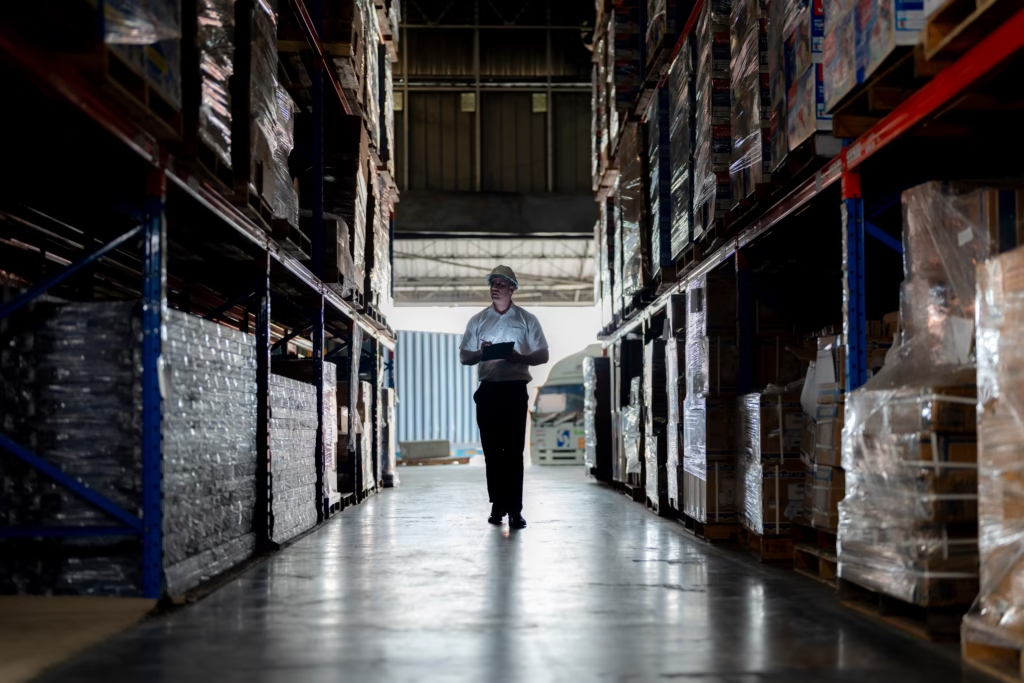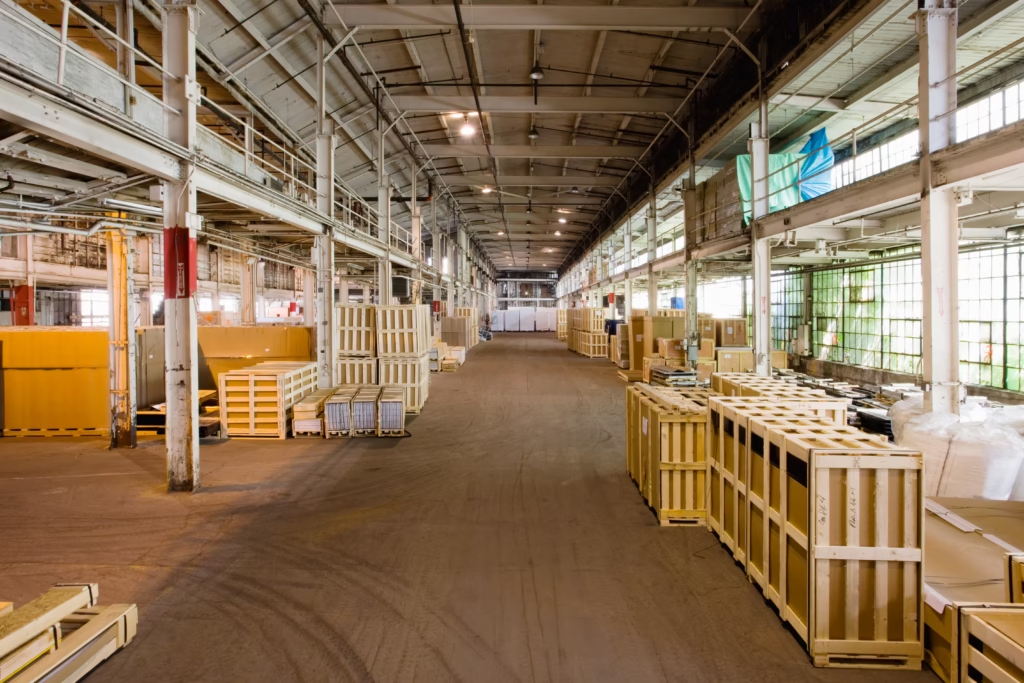
The Benefits of a Built-to-Suit Warehouse for Your Business
Warehouses have been operating on the pure storage concept for years. In today’s challenging business climate, warehousing can bring supply-chain effectiveness, enhance customer satisfaction, and facilitate long-term growth. Most firms like to opt for the existing warehouses; however, more and more are looking at a more intelligent choice- the Built to Suit (BTS) warehouse.
In simple terms, a built-to-suit warehouse is a building specifically made and built according to the working requirements of a specific company. Instead, BTS warehouses are constructed to achieve a company’s business objectives, thus they improve working efficiency and business development.
What is a Built-to-Suit Warehouse?
A built-to-suit warehouse is a tailor-made warehousing building. Rather than renting or purchasing an existing warehouse, companies partner with developers to build a structure to their specifications.
Essentially, it’s similar to building a warehouse from scratch, where you get to decide:
- The organization of the space
- The storage system types
- The application of technology (i.e., warehouse management systems)
- Safety and compliance considerations
- Location on supply chain paths
It keeps companies from ever again having to sacrifice space, design, or functionality. BTS warehouses are adaptable, flexible, and provide long-term value that standard warehousing can’t.
You may also like – Proven Principals for Warehouse Design and Operations
Key Benefits of Built-to-Suit Warehouses

Companies opt for built-to-suit warehousing for one reason: efficiency and control. The above are the main benefits of built-to-suit warehouse solutions:
1. Enhanced Operating Efficiency
In every way, from design to equipment, all are designed specifically for increased productivity. For instance, large shipping organizations have broader docking docks and automated conveying systems. This maximizes supply chain management.
2. Distribution-Key Locations
In the modern-day supply chain, speed and accessibility are everything. Hence, BTS warehouses are often located near highways, ports, or other industrial hubs. Being strategically located helps the companies to speed up their goods, reduce the time being readied for sale, and shrink transportation costs-union of which translates into overall greater efficiency.
3. Industry-Specific Customization
Every industry comes with its own warehousing needs. Pharmaceutical companies require facilities that are temperature-controlled to maintain the drugs in their efficacies, and e-commerce, on the other hand, needs areas for packaging and order processing.
BTS warehouses consider these special needs to ensure the users get the spaces designed to suit their respective operations.
4. Cost Effective Over Long Term
Though in terms of economic value as an initial investment, it may seem costlier than buying a ready-made warehouse to rent out, in the long run, huge cost savings accrue. Companies are spared from modifications, downtime, and inefficiencies that ready-made warehouses normally present.
5. Promotes Future Growth
As companies grow, their storage requirements evolve. A build-to-suit building can be planned with expansion possibilities in the future, more warehousing space, technological upgrades, or automation options.
Built-to-Suit vs Existing Warehouses
Firms waste a lot of time arguing whether to remain with existing warehouses or transition to BTS warehouses. Here’s a comparison:
Current Warehouses
Leasable warehouses are rented out promptly and give access to space right away. They are usually a compromise: they are not highly designed, not technologically sophisticated as required, and cannot be customized to meet the vendor’s increasing technology demands for the future.
Businesses usually have to make some adjustments at extra costs. However, in most situations, they linger and operate inefficiently, influencing long-term operating activities and total supply chain performance.
Built-to-Suit Warehouses
Built-to-suit warehouses are constructed and planned from the ground up so that each element in their construction is designed to fulfill the requirements of a company’s operations. It is all about efficiency in the space, technology used, storage areas, and future scalability.
Flexibility makes them an efficient means of conducting business and a tool by which the company can extrapolate its long-term objectives, hence an achievable option for future-proof warehousing.
For organisations seeking expansion and longevity, a built-to-suit warehouse is preferable to the existing warehousing facilities.
Read Also – Key Factors to Consider for Building and Efficient Warehouse Design
The Place of Built-to-Suit Warehousing in Supply Chain Management

A well-organized warehouse is the foundation of a good supply chain. BTS warehousing supports supply chain management in many ways:
- Seamless third-party logistics provider (3PL) integration.
- Advanced warehouse management systems allow real-time tracking.
- Tailored configurations minimize loading/unloading time.
- Industry-specific features like cold storage or the management of dangerous goods.
All these, BTS warehousing solutions enhance overall supply chain performance, enabling companies to get there faster and wiser.
Who is the Audience for Custom Storage?
Created to suit warehouses, this solution is not just for the giants. Any company that guarantees efficiency, customization, and scaling can utilize them. Some examples are:
- E-commerce: Demanded speed, packaging, storage capacity, and technological integration.
- FMCG (Fast Moving Consumer Goods): Require vast storage-and-distribution facilities.
- Pharmaceuticals: Require cold storage and regulation-compliant facilities.
- Manufacturing: Storage for raw materials requires special arrangements relevant to the industry.
These industries have companies that offer simple operations and long-term growth by adopting a suite warehouse format.
Cost Factors and Investment Gains
One of the most common questions business companies ask is: Is a built-to-suit warehouse worth the price?
- The price varies based on such factors as:
- Location (industrial complex vs. city)
- Scale and size of operations
- Degree of personalization (cold storage, automation, etc.)
- Technology deployment
While the initial cost is higher, long-term value for money is unquestionable. Organizations avoid repeated change costs, save time for having streamlined procedures, and own a building that suits their needs.
BTS warehousing is not a cost but a long-term growth and efficiency investment.
Don’t forget to Read – Choosing the Right Contractor for Your Warehouse Construction Project
Conclusion on Built-to-Suit Warehouse
Built-to-suit warehouses are a modern type of warehouse for a firm. In the contemporary business period, the modern objectives of an organization require improvement in operational efficiency, strategic location, supply chain management, and growth potential beyond what the facility can offer.
Business house investment in specially designed warehouse space provides them with long-term competitive strength, better cost considerations, and flexibility based on the character of their different businesses that distinguish business A from business B.
Putting aside other factors, built-to-suit warehouses are more about business success and a platform than warehousing.
Frequently Asked Questions Regarding Built-to-Suit Warehouse
Below are the answers to the most asked queries on the internet regarding built-to-suit warehouse.
Q1. Is it more economical to purchase or construct a warehouse?
Purchasing existing warehouses is less expensive in the initial phase, but it involves additional costs such as modification, inefficiency, or low scalability. Thus, building a warehouse, particularly a built-to-suit, is a worthwhile investment in the long term as it is built per your specifications and saves you money.
Q2. How much do we pay to build a warehouse?
It varies in terms of location, size, nature, and application of technology. Though figures vary, it should be considered an ongoing cost that covers operations and future adjustments.
Q3. Built-to-suit warehouse regarding:
A tailored warehouse is a building specially designed and built to meet a particular company's operational, storage, and logistics needs.
